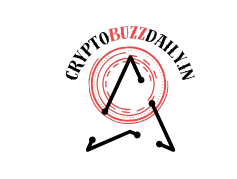South Korea’s Financial Intelligence Unit (FIU) is taking proactive measures to modernize its anti-money laundering (AML) framework in anticipation of upcoming stablecoin legislation. With digital assets becoming an integral part of the financial system, the FIU has launched a comprehensive review of its AML protocols to ensure they are capable of addressing new challenges.
As part of this initiative, the regulator has commissioned an external study, the findings of which are expected to be published by December. This research will act as the blueprint for a restructured AML framework, specifically designed to mitigate risks linked to the expanding use of stablecoins in South Korea.
New Compliance Standards Under Development
The FIU’s restructuring plan will likely focus on several critical compliance areas, including:
- Stricter entry controls for stablecoin service providers entering the market
- Enhanced security protocols to safeguard digital assets and protect consumers
- Comprehensive reporting obligations to strengthen transparency and accountability
According to FIU officials, these updated standards will significantly reinforce South Korea’s defenses against money laundering, fraud, and financial crimes associated with stablecoins. By acting early, the regulator aims to create a secure environment that promotes innovation while minimizing risks.
FIU’s Expanding Role in Crypto Oversight
At present, the FIU is responsible for supervising AML compliance across cryptocurrency exchanges. With the introduction of stablecoin-specific laws, the agency is preparing to become the primary authority overseeing AML compliance for stablecoins.
This comes during a period of uncertainty surrounding its parent body, the Financial Services Commission (FSC). President Lee Jae-myung had previously proposed restructuring or even dissolving the FSC. However, the government recently confirmed that the commission will remain in place and continue managing crypto-related policies until at least 2025. This provides policy stability while the FIU expands its mandate.
Global Benchmarking for Stronger AML Protocols
The FIU’s AML restructuring is not limited to domestic reforms. The regulator has confirmed it is conducting a review of international regulatory models for stablecoins. By benchmarking against global standards, South Korea aims to align its AML systems with best practices worldwide.
This approach will not only protect the country’s financial system from emerging risks but also ensure its regulatory framework remains competitive on the international stage. Such global alignment is critical as stablecoins, by nature, operate across borders.
Stablecoin Lending Sparks Political Debate
Within the National Assembly, lawmakers are currently reviewing multiple stablecoin-related proposals. A key point of contention is whether to permit stablecoin-based lending services.
Supporters believe that allowing lending could drive financial innovation and attract investment. However, critics caution that it may expose the market to systemic risks and increase volatility. The debate highlights the delicate balance between encouraging innovation and ensuring strong investor protection.
Industry Leaders Prepare Ahead of Regulation
Even before the legislation is finalized, South Korean financial institutions, fintech companies, and major technology firms are preparing for the stablecoin era. Many have already filed trademarks and created dedicated divisions to explore new opportunities in this space.
Notably, tech giants such as Kakao and Naver, both dominant in digital payments, online banking, and SaaS services, are expected to play a leading role in mainstreaming stablecoins once regulations are implemented. Their early preparations suggest that South Korea could quickly become a major hub for stablecoin adoption in Asia.
Conclusion
The move by the South Korean Regulator to Reorganize AML Protocols Ahead of Stablecoin Legislation demonstrates the country’s forward-looking approach to digital asset oversight. By introducing new compliance standards, expanding the FIU’s role, aligning with global practices, and encouraging industry readiness, South Korea is positioning itself as a leader in safe and innovative stablecoin adoption.









